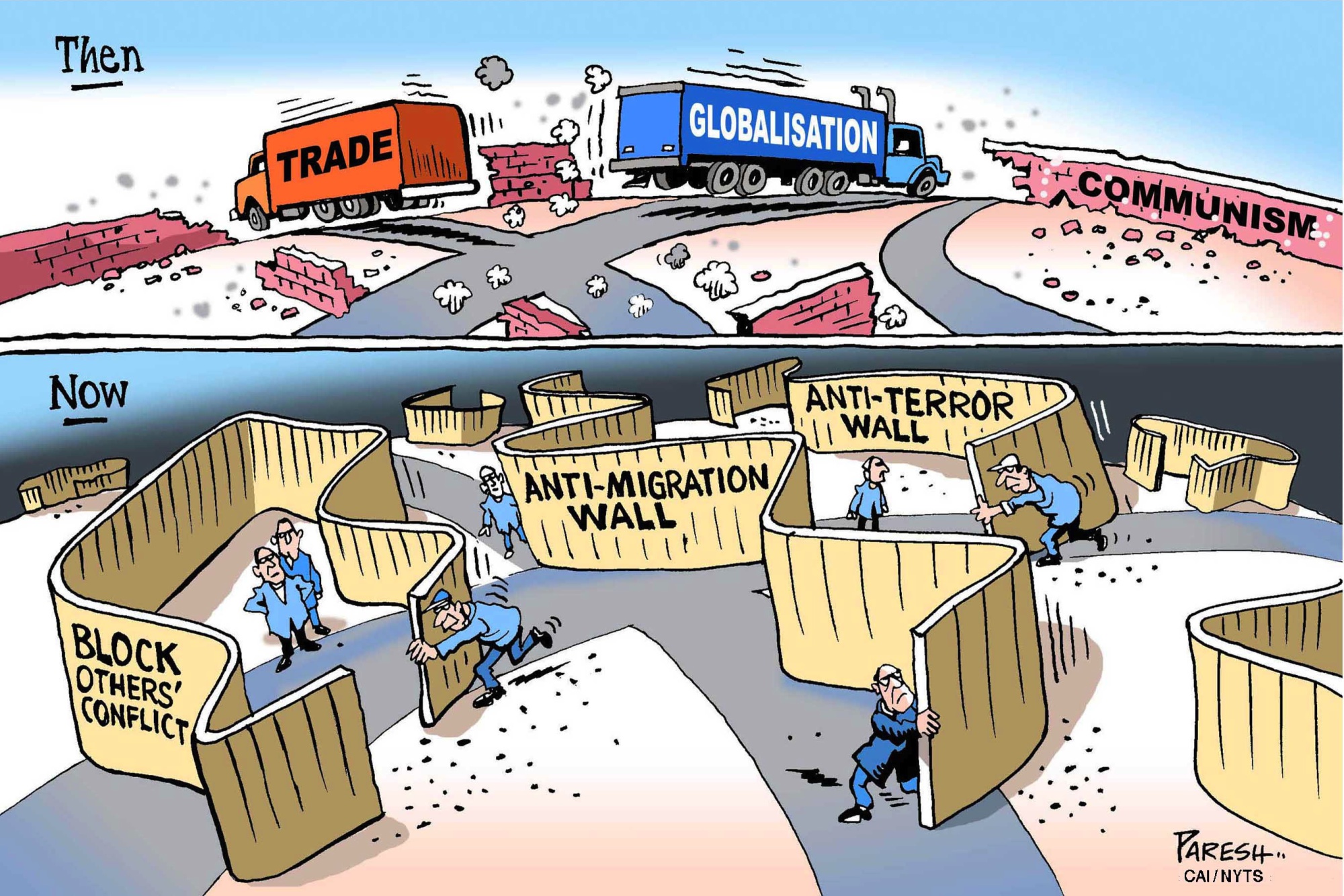Does Donald Trump's election as U.S. president mean that globalization is dead, or are reports of the process' demise greatly exaggerated? If globalization is only partly incapacitated, not terminally ill, should we worry? How much will slower trade growth, now in the offing, matter for the global economy?
World trade growth would be slowing down, even without Trump in office. Its growth was already flat in the first quarter of 2016, and it fell by nearly 1 percent in the second quarter. This continues a prior trend: since 2010, global trade has grown at an annual rate of barely 2 percent. Together with the fact that worldwide production of goods and services has been rising by more than 3 percent, this means that the trade-to-GDP ratio has been falling, in contrast to its steady upward march in earlier years.
This disturbing trajectory, argue the mavens of globalization, reflects the resurgent protectionism manifest in popular opposition to the Trans-Pacific Partnership (TPP) and the Transatlantic Trade and Investment Partnership (TTIP), and now in Trump's electoral victory. It means that the benefits of openness and specialization are being squandered.



